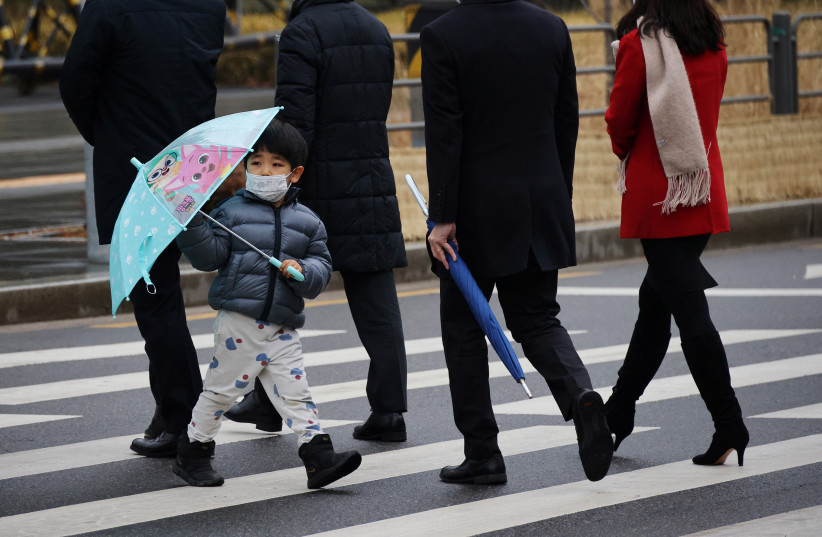Here's what you need to know about the <a href="https://www.jpost.com/health-and-wellness/coronavirus/article-695964">coronavirus</a> right now:
Hong Kong leader 'deeply sorry' for long queues
Hong Kong's leader, Carrie Lam, has said she is deeply sorry and anxious about long queues at coronavirus testing centers and isolation facilities after a record number of new cases left authorities scrambling.
Hong Kong's daily COVID-19 infections nearly doubled to a record 1,161 cases on Wednesday as the global financial hub battles a surge that is proving to be the biggest test of its "dynamic zero" policy of virus suppression.
South Korea turns to self-treatment

South Korea launched a self-treatment scheme for patients with mild coronavirus symptoms in order to free up medical resources for more serious cases, as new infections hit a high on Thursday due to the fast-spreading Omicron variant.
The government this month started to shift its strategy away from testing and tracing and towards self-monitoring, diagnosis and at-home treatment. Medical kits including an oxygen saturation measurement device, a thermometer and a fever remedy - previously available to all patients who treat themselves at home - would now be distributed only to priority groups.
Japan's COVID-19 surge shows signs of peaking
Japan's biggest wave of COVID-19 cases to date is showing signs of peaking though authorities are extending virus curbs into next month to try to bring down the rate of hospitalizations.
Top medical adviser Shigeru Omi said on Thursday that health centers would shift towards focusing on care for the elderly and those at risk of developing a serious illness.
New Zealand police make arrests at vaccine mandate protests
New Zealand police on Thursday arrested more than 50 people and began forcefully removing hundreds of protesters camped outside its parliament for the last three days to protest COVID-19 vaccine mandates and tough coronavirus restrictions.
Inspired by truckers' demonstrations in Canada, now into the 13th day with protesters blocking two border crossings with the United States, several thousand protesters in New Zealand this week blocked streets near parliament in the capital, Wellington, with trucks, cars and motorcycles.
Risk of new heart problems much higher after COVID recovery
Long after recovery from COVID-19, people face significantly higher risks for new heart problems, a large study by the US Department of Veterans Affairs has found. An average of one year after their recovery from the acute phase of the infection, COVID-19 survivors had a 63% higher risk for heart attack, a 69% higher risk for problematic irregular heart rhythm, a 52% higher risk of stroke, a 72% higher risk of heart failure, and a nearly three times higher risk of a potentially fatal blood clot in the lungs compared with the other two groups, according to a report published on Monday in Nature Medicine.
The risks were high even in people who had mild COVID-19 and did not need to be hospitalized for it, Ziyad Al-Aly of the VA St. Louis Health Care System and Washington University in St. Louis said on Twitter. "It really spared no one," Al-Aly told Reuters. "People with COVID-19 should pay attention to their health and seek medical care if they experience symptoms like chest pain, chest pressure, palpitation, swelling in the legs, etc."
Sweden declares pandemic over, despite scientist warnings
Sweden scrapped almost all of its few pandemic restrictions on Wednesday and stopped most testing for COVID-19, even as the pressure on the healthcare systems remained high and some scientists begged for more patience in fighting the disease.
Swedish hospitals were still feeling the strain, however, with about 2,200 people with COVID requiring hospital care, about the same as during a third wave in the spring of 2021. As free testing was reduced this month and effectively stopped from Wednesday, no one knows the exact number of cases.
